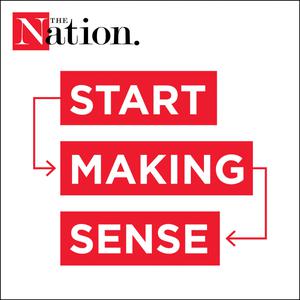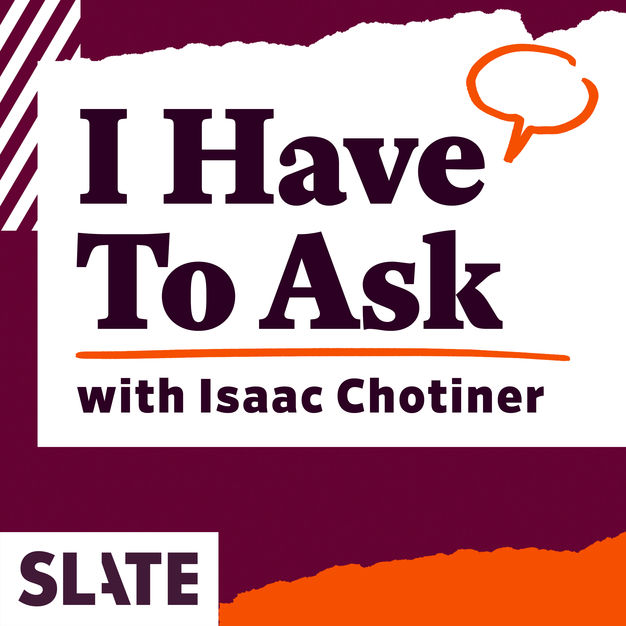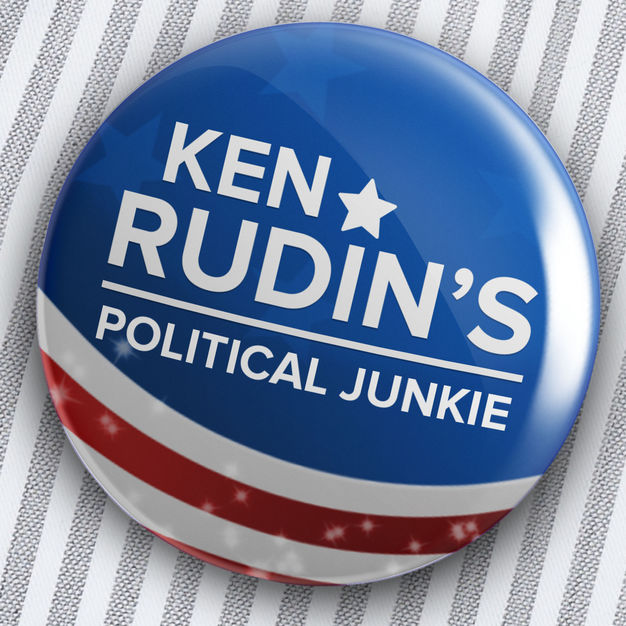
To the Point
KCRW
A monthly reality-check on the issues Americans care about most. Host Warren Olney draws on his decades of experience to explore the people and issues shaping – and disrupting - our world. How did everything change so fast? Where are we headed?...
- 1 hour 4 minutesNicholas Kristof on good news in a bad world; Steve Lopez on aging
Despite war and pandemic, New York Times columnist Nicholas Kristof finds good news in a “stunning” decline of worldwide poverty and “extraordinary” improvements in child mortality. Los Angeles Times columnist Steve Lopez examines retirement options for an aging population as he finds himself getting older.
10 March 2023, 8:00 am - 47 minutes 32 secondsFor the first time in Iran’s history, women are leading a counter-revolution
Writer and author of The Great Revolution: Turmoil and Transformation in Iran, Robin Wright says that after weeks of protest on the streets of Iran, “for the first time in human history, you're beginning to see a counter revolution ignited by women. ” Later, despite the failure of the UN’s leadership conference on climate change, New York Times science reporter David Wallace-Wells says, “we're moving much faster than most analysts projected a few years ago,” and says the climate crisis is not as bad as he thought when he wrote,”The Uninhabitable Earth” five years ago.
5 December 2022, 8:00 pm - 1 hour 3 minutesCan the news media help save democracy?
Former New York Times and Washington Post Media Critic Margaret Sullivan says America faces a threat to democracy. In her new book, “Newsroom Confidential: Lessons (and Worries) from an Ink-Stained Life,” she says it’s time to move on from “objectivity” and make reporting a form of activism. And, Scott Galloway says America is not yet lost, but it has gone adrift, and that’s the title of his latest book. In “Adrift,” he talks about income inequality, polarization, and failing young men. But he says, “I think they can be undone … the ills that plague us are fixable.”
31 October 2022, 7:00 am - 57 minutes 7 secondsWill Trump run for White House again, can PG&E keep lights on?
Will Trump run for the presidency again? And in the aftermath of California’s deadly wildfires, can the state’s largest utility, PG&E, mend its ways?
6 October 2022, 7:00 am - 1 hour 4 secondsDiablo Canyon: Can the nuclear plant work safely for 10 more years?
What are the risks of keeping the Diablo Canyon Nuclear Power Plant open? And an atheist and Muslim agree on what happens when people find religion through politics.
8 September 2022, 7:00 am - 41 minutes 16 secondsIs catastrophic news coverage fit for human consumption?
Does the news really have to be all that bad, or does our addiction to catastrophe drive outlets to deliver what sells? How might today’s media be fixed?
5 August 2022, 7:00 am - 59 minutesSCOTUS strikes down concealed-carry law. Is gun control in danger?
What to expect of the Supreme Court’s decision to ease conceal-carry restrictions, Biden’s new gun safety law, and the Sandy Hook lawsuit? Then, does it matter if Russia leaves the International Space Station?
7 July 2022, 7:00 am - 1 hour 3 minutesBaby formula crisis reveals dangers of too little competition in US economy
Why does America’s baby formula shortage continue? Also, Norm Eisen’s new book traces corruption from the Trump White House to the rest of the country.
26 May 2022, 7:00 am - 1 hour 46 secondsUN won’t end Russia-Ukraine war, diversity can threaten democracy
The United Nations can’t stop Russia’s war on Ukraine. And author Yascha Mounk says more diversity is a threat to democracy, but he’s still hopeful.
5 May 2022, 7:00 am - 1 hour 5 minutesUkraine faces ‘bloody stalemate’ — and 4 other scenarios
Russia’s assault on Ukraine is the most destructive event in Europe since World War II, and though it’s hard to determine how or when it might end, a team from Foreign Policy magazine came up with an assessment of what might be in store for Ukraine.
31 March 2022, 7:00 am - 59 minutes 24 secondsWill sanctions against Russia make Putin more volatile?
What does the first week of Vladimir Putin’s invasion of Ukraine say about the likelihood of a cyber and nuclear war? While the West imposes heavy sanctions, Russian forces encounter fierce Ukrainian resistance on the ground.
2 March 2022, 8:00 am - More Episodes? Get the App
Your feedback is valuable to us. Should you encounter any bugs, glitches, lack of functionality or other problems, please email us on [email protected] or join Moon.FM Telegram Group where you can talk directly to the dev team who are happy to answer any queries.
 Scheer Intelligence
Scheer Intelligence
 Start Making Sense
Start Making Sense
 I Have to Ask
I Have to Ask
 The Breakthrough
The Breakthrough
 Press Play with Madeleine Brand
Press Play with Madeleine Brand
 Ken Rudin's Political Junkie
Ken Rudin's Political Junkie